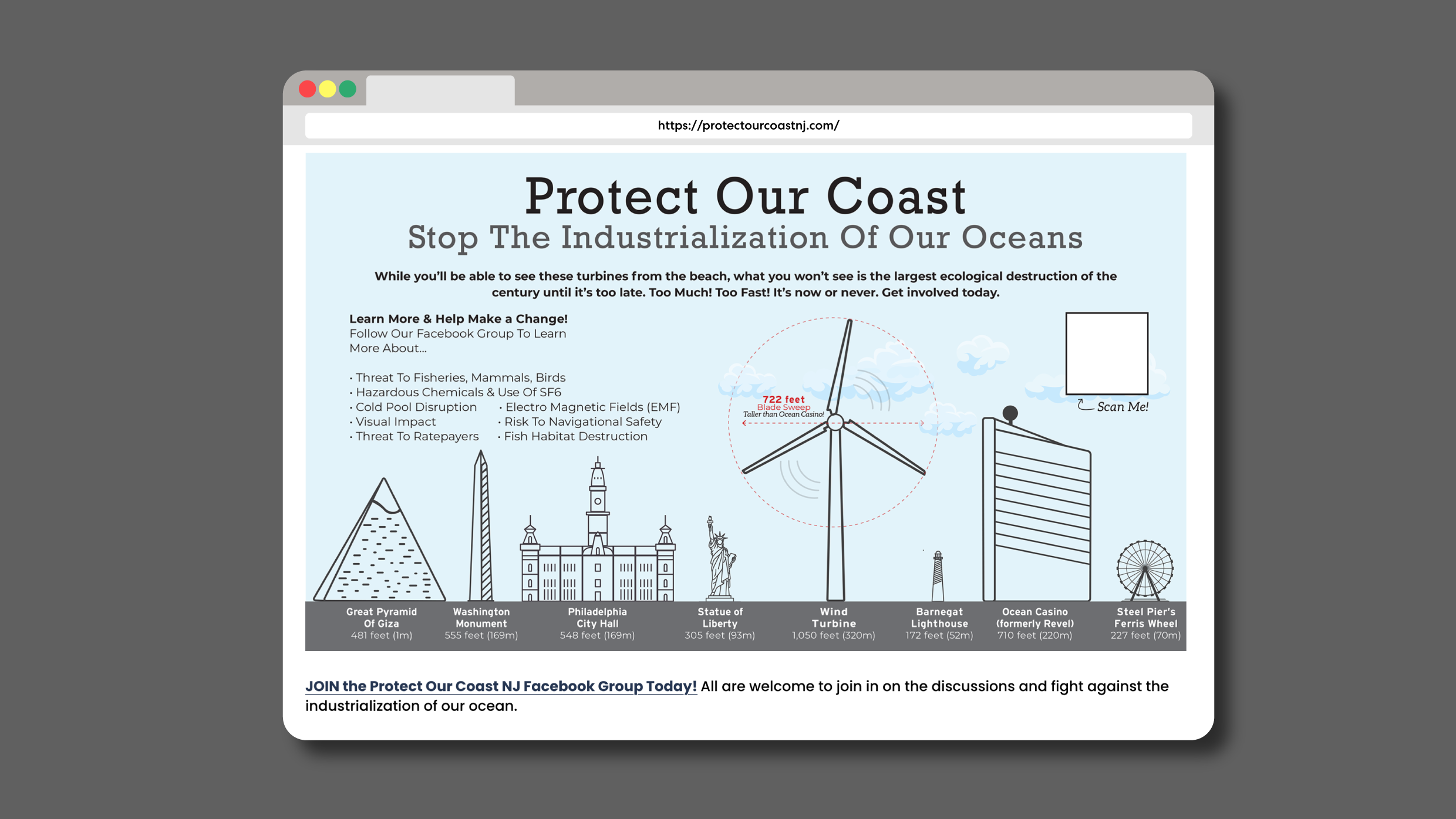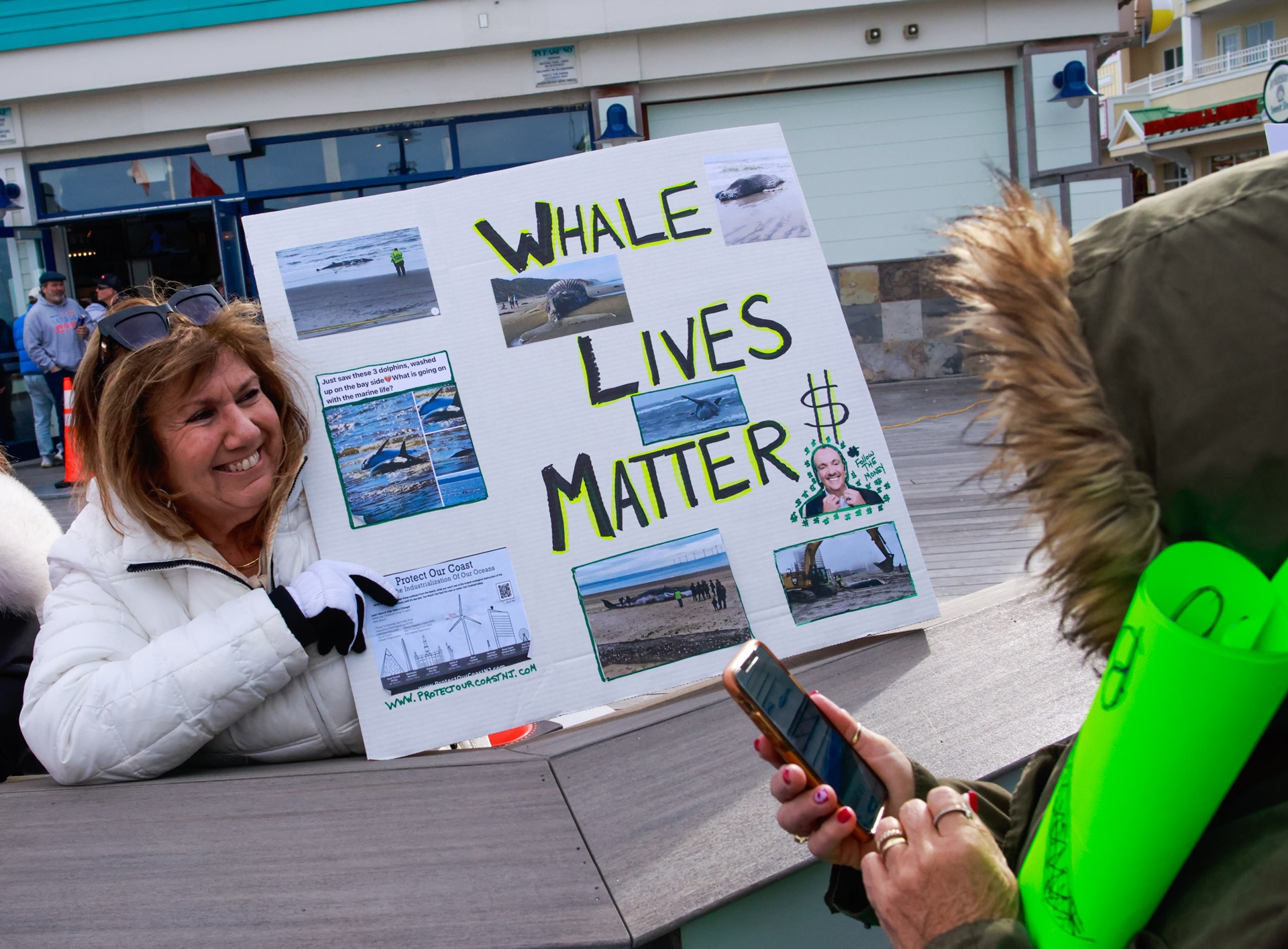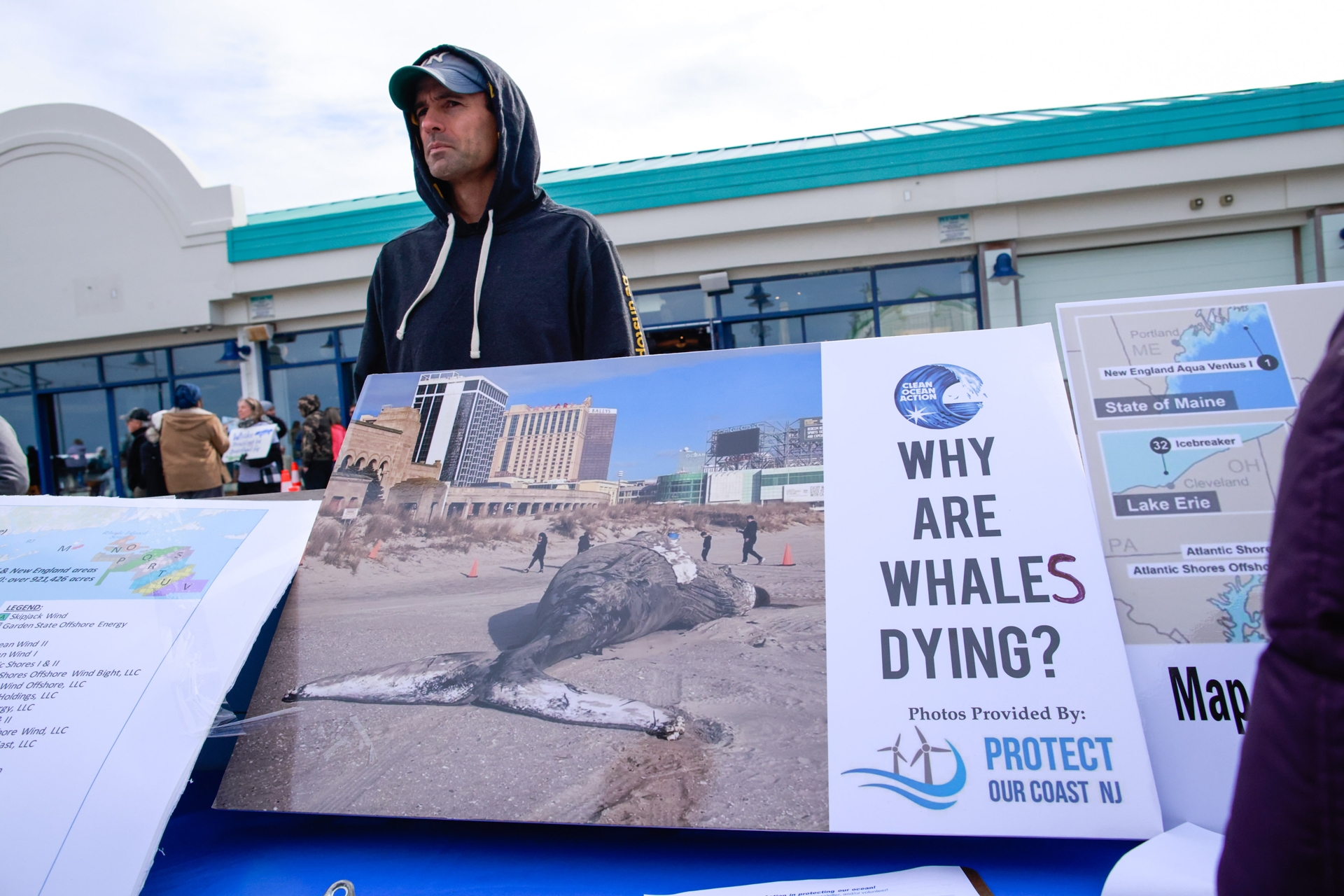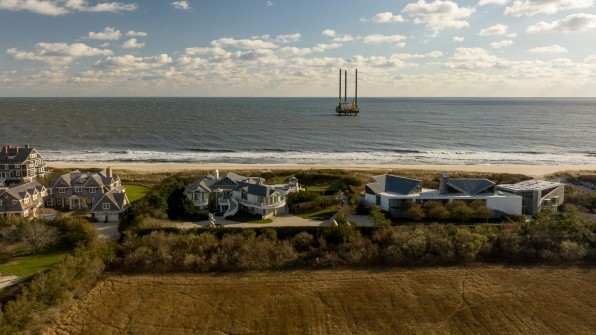If you visit the website of the group Protect Our Coast New Jersey, it looks like it could belong to any grassroots environmental organization, perhaps one made up of homeowners, retirees, and other volunteers worried about conditions on their local beaches. The site talks about the “industrialization of the ocean” and the need to protect the endangered North Atlantic right whale. But dig a little deeper, and you’ll discover something unexpected: Protect Our Coast New Jersey is connected to a right-wing think tank seemingly motivated by a different goal: curbing the offshore wind industry.

It’s not the only grassroots organization with suspicious backing. A closer look at several groups that have been in the news blaming wind power construction for a recent rash of whale deaths in New Jersey (and similar groups across the country) reveals that while they purport to be focused on saving the whales or preserving coastlines, they’re actually backed by oil-industry interests that are trying to tank renewable energy. This could have significant implications for offshore wind, which experts see as one of the biggest ways to make the East Coast’s electric grid run on clean energy.

New Jersey plans to run on 100% renewable electricity by the middle of the century. To hit that goal, there is a road map to install 11 gigawatts of offshore wind power by 2040, enough to power millions of homes and businesses. Along the broader East Coast, more than 16 gigawatts of offshore wind capacity is set for deployment. Groups linked to the fossil fuel industry are fighting it, including replicating the tactic seen in New Jersey: posing as environmentalists and professing concern for whales, despite a lack of evidence that offshore wind is a major risk for marine life—especially in comparison to the known threat of climate change.

One man is linked to several front groups: David Stevenson, head of the Caesar Rodney Institute, a nonprofit that has been backed by the conservative dark money groups Donors Capital Fund and DonorsTrust, along with the American Fuel and Petrochemical Manufacturers and the American Energy Alliance, a fossil industry group founded by a former Enron executive. Stevenson, who spent years as an executive at DuPont, is also a policy adviser for the conservative and libertarian think tank the Heartland Institute and was a member of President Donald Trump’s Environmental Protection Agency transition team. He has publicly questioned established science on climate change and advocated against subsidies for EV purchases.
Save Our Beach View, which claims to be a grassroots organization fighting wind power in Delaware and Maryland (“Our precious beach is about to be changed forever if immediate action is not taken”) says explicitly on its website that it is “a project of the Caesar Rodney Institute.” Any donations it receives go directly to the institute.
The Caesar Rodney Institute said in an email that other small groups it’s associated with are “all their own entities.” But there are clear connections. The donation page for Protect Our Coast New Jersey, for example, also sends money directly to the Caesar Rodney Institute. (Save Our Beach View and Protect Our Coast New Jersey did not respond to requests for comment by press time.)
In Massachusetts, Stevenson helped raise money to support a lawsuit for another group, Nantucket Residents Against Turbines, fighting the Vineyard Wind project off the coast of Martha’s Vineyard. The group claims that the project is a risk to the North American right whale. (Stevenson is one of the managers of yet another group, the benign-sounding American Coalition for Ocean Protection, which raises funds for anti-wind lawsuits through its Ocean Environment Legal Defense Fund.) Another lawsuit opposing the Nantucket project—ostensibly brought by local fishermen—was backed by the Texas Public Policy Foundation, a nonprofit funded by oil and gas companies.
The Save Right Whales Coalition, another enviro-sounding group that describes itself as “lifelong nature lovers and environmentalists” claims that offshore wind will “drive right whales to extinction.” It’s made up of several groups with links to the Caesar Rodney Institute, and, by extension, oil and gas funding. It sends donations directly to Environmental Progress, a nonprofit founded by Michael Shellenberger, who recently ran for California governor and has argued that climate change is an overblown threat in his 2020 book, Apocalypse Never: Why Environmental Alarmism Hurts Us All. Shellenberger has long advocated against wind and solar energy in favor of nuclear power.
Multiple other similar-sounding groups are connected to Stevenson and the American Coalition for Ocean Protection, including the Long Beach Island Coalition for Wind Without Impact and Wind Action, a group that bills itself as the “#1 Trusted Information Resource for Large-Scale Renewables.” All espouse the same anti-wind rhetoric, including claims that wind farms will harm marine life. These groups, and others, signed a letter protesting wind farms off the East Coast and announced their intent to sue. In January 2021, Save Long Beach Island (a nonprofit that grew out of LBI Coalition for Wind Without Impact) filed suit against the U.S. Department of the Interior and the Bureau of Ocean Energy Management.
After several whales died recently off the coast of New Jersey—part of a longer trend of whale deaths on the East Coast that has been linked to ships hitting the whales and fishing gear trapping them—the groups were quick to point to early-stage activity at the wind farms. Several federal investigations are underway. To date, no evidence has been found to link wind-farm construction to whale deaths. Established environmental groups, including the National Wildlife Federation, Sierra Club, and Natural Resources Defense Council, have said that the claims are unfounded and that delaying wind projects would be a mistake. While some of the whales were too decomposed to examine, others showed evidence of ship strikes or entanglement with fishing gear.
“Blaming offshore wind projects on whale mortality without evidence is not only irresponsible but overshadows the very real threats of climate change, plastic pollution, and unsustainable fishery management practices to these animals,” Anjuli Ramos-Busot, New Jersey Director of the Sierra Club, said in a statement. One way that climate change may be linked to the current deaths is the fact that warmer waters can bring whales closer to shore to feed, putting them in the path of more ships.

It’s notable that groups fighting wind power aren’t advocating for other actions known to protect whales, including lower speed limits for ships or changes to fishing gear. But the claims that they’ve made about wind farms have gained some traction. In New Jersey, 30 mayors in coastal towns recently called for a moratorium on wind farm construction, citing their concern about whales. A petition from Protect Our Coast New Jersey calling for an “immediate halt” in wind activity has thousands of signatures.
The pushback could be one factor that might slow down the development of offshore wind. “I think this misinformation that is stemming from the fossil fuel industry is a problem,” says Roger Stephenson, the Northeast regional advocacy director for the climate and energy program at the nonprofit Union of Concerned Scientists. Offshore wind, he says, is critical to help the East Coast meet its climate goals.
(33)